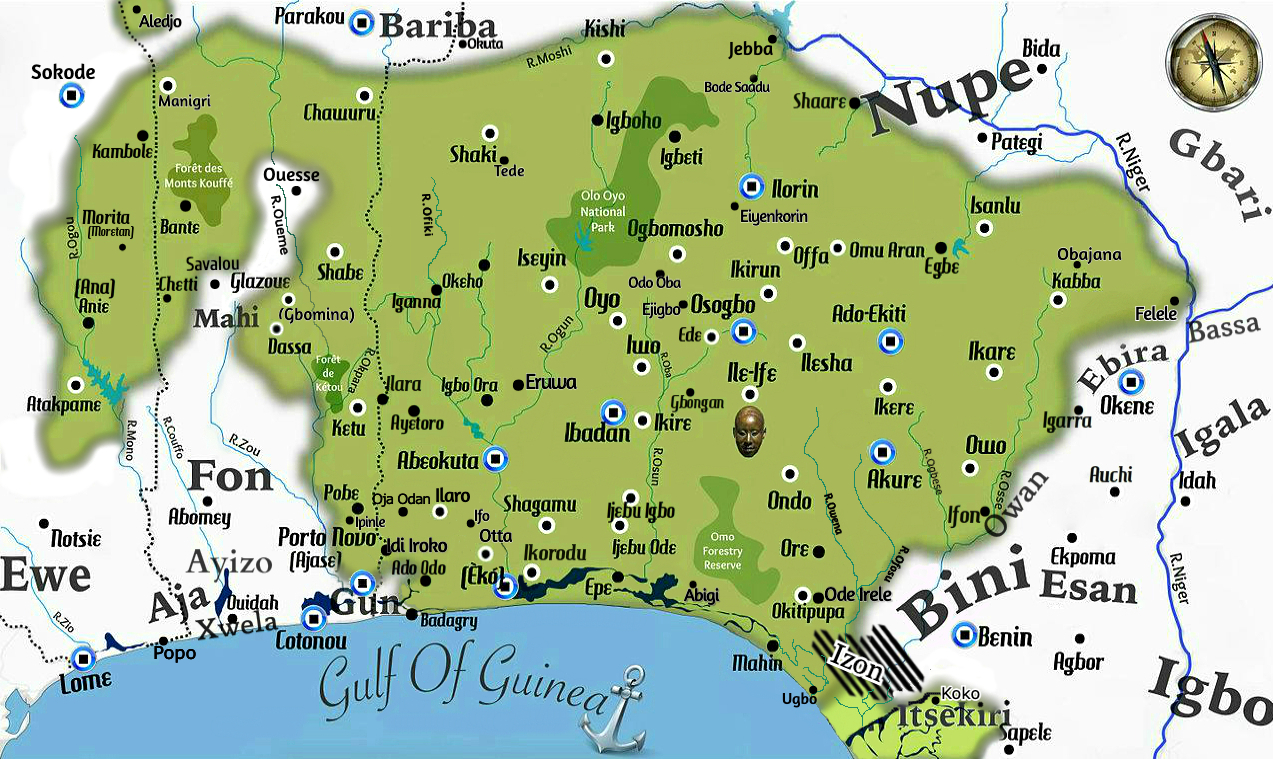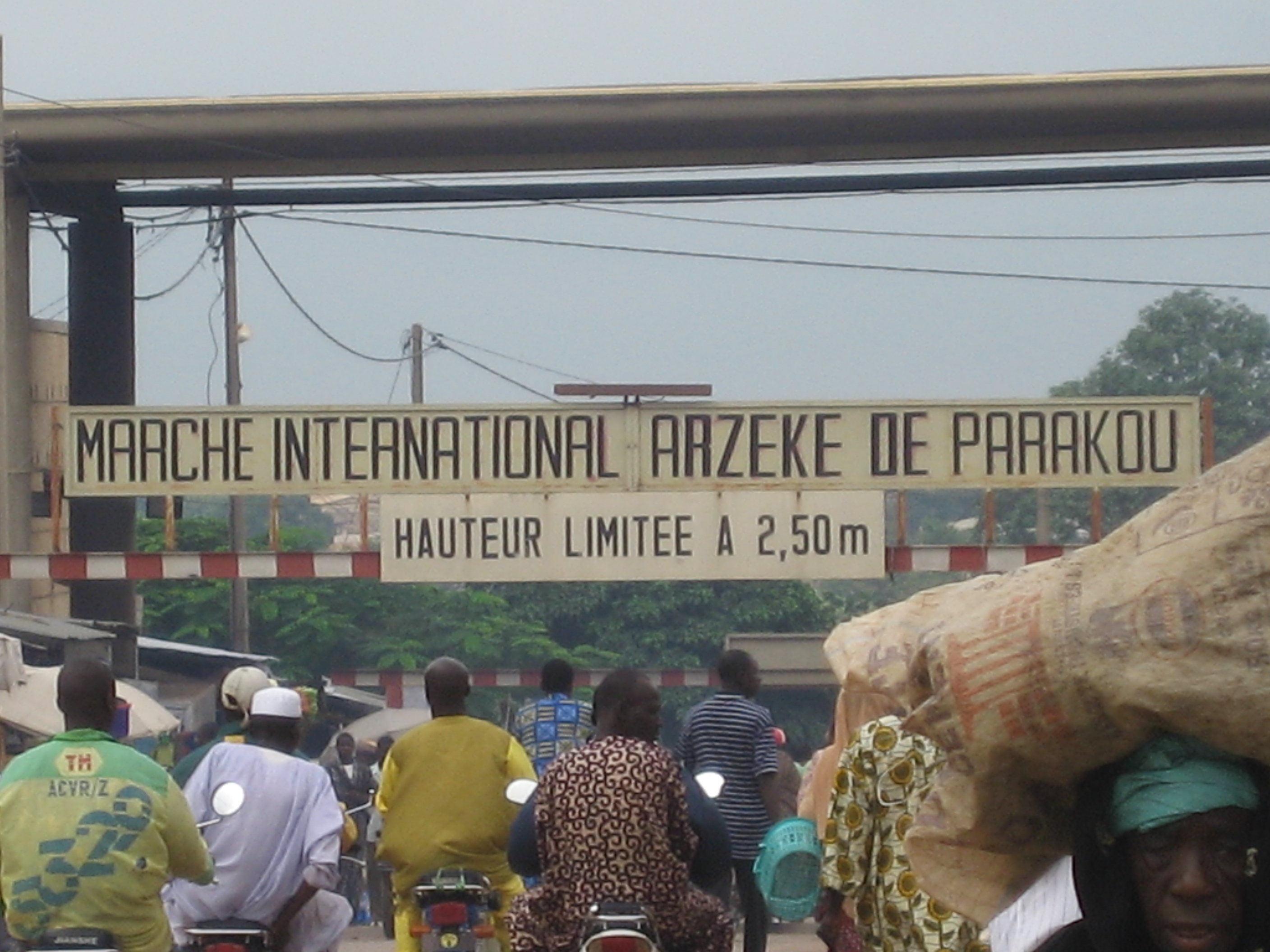|
Battle Of Ilorin
The Battle of Ilorin, sometimes called the Eleduwe War, occurred during the 1830s as part of the Yoruba Wars. The Ilorin Emirate's decisive victory over the invading Oyo Empire, and the death of the Alaafin Oluewu, marked the final collapse of the Oyo state. Background The Oyo Empire had been the hegemonic power over much of Yorubaland since the 17th century, but by the 1820s had been severely weakened by rebellion. In particular, the city of Ilorin, an Islamic Emirate pledging loyalty to the Sokoto Caliphate, had become the strongest city in the region. Oluewu, Alaafin of Oyo, was not willing to give up his country's historical position, however. Invited to pay homage to the Emir, he refused, and went about raising troops from former Oyo vassals and forming a military alliance with Borgu to march on Ilorin. Forces Leading the Borgu forces were Sero Kpera, king of Nikki; Ki-Yaru Doride, the king of Kaiama; and Gajere or JikiMasa, representing the king of Bussa. Other comm ... [...More Info...] [...Related Items...] OR: [Wikipedia] [Google] [Baidu] |
Ilorin
Ilorin is the capital city of Kwara State located in the Western region of Nigeria. The city is a major hub for transportation and commerce in the region. . Retrieved 18 February 2007 Although Ilorin is classified under the North-Central geopolitical zone, the city is considered a Yoruba city by all historical and sociological standards. As of the 2006 census, it had a population of 777,667, making it the 7th largest city by population in Nigeria. History Ilorin was founded by the Yoruba, one of the three largest ethnic groups in Nigeria, in the late 18th century. It became a provincial military headquarters within the Oyo Empire until 1817, when the local Kakanfo (field marshal) named Afonja rebelled, supported by the Hausa Shehu Alimi, an itinerant Islamic preacher and teacher. Their alliance eventually broke down over the Muslims' increasing power and Afonja's refusal to convert, and he was eventually assassinated. Alimi's son Abd al-Salam pledged allegiance to ... [...More Info...] [...Related Items...] OR: [Wikipedia] [Google] [Baidu] |
Yorubaland
Yorubaland () is the homeland and cultural region of the Yoruba people in West Africa. It spans the modern-day countries of Nigeria, Togo and Benin, and covers a total land area of . Of this land area, 106,016 km2 (74.6%) lies within Nigeria, 18.9% in Benin, and the remaining 6.5% is in Togo. Prior to European colonization of Africa, European colonization, a portion of this area was known as Yoruba country. The geo-cultural space contains an estimated 55 million people, the majority of this population being ethnic Yoruba people, Yoruba. Geography Geo-physically, Yorubaland spreads north from the Gulf of Guinea and west from the Niger River into Benin and Togo. In the northern section, Yorubaland begins in the suburbs just west of Lokoja and continues unbroken up to the Ogooué River tributary of the Mono River in Togo, a distance of around 610 km. In the south, it begins in an area just west of the Benin and Osse River (Nigeria), Osse (Ovia) river occupied by the Ilaj ... [...More Info...] [...Related Items...] OR: [Wikipedia] [Google] [Baidu] |
Wars Involving Nigeria
War is an armed conflict between the armed forces of states, or between governmental forces and armed groups that are organized under a certain command structure and have the capacity to sustain military operations, or between such organized groups. It is generally characterized by widespread violence, destruction, and mortality, using regular or irregular military forces. ''Warfare'' refers to the common activities and characteristics of types of war, or of wars in general. Total war is warfare that is not restricted to purely legitimate military targets, and can result in massive civilian or other non-combatant suffering and casualties. Etymology The English word ''war'' derives from the 11th-century Old English words and , from Old French ( as in modern French), in turn from the Frankish , ultimately deriving from the Proto-Germanic language">Proto-Germanic . The word is related to the Old Saxon , Old High German , and the modern German , meaning . History Anth ... [...More Info...] [...Related Items...] OR: [Wikipedia] [Google] [Baidu] |
19th Century In Nigeria
19 (nineteen) is the natural number following 18 and preceding 20. It is a prime number. Mathematics Nineteen is the eighth prime number. Number theory 19 forms a twin prime with 17, a cousin prime with 23, and a sexy prime with 13. 19 is the fifth central trinomial coefficient, and the maximum number of fourth powers needed to sum up to any natural number (see, Waring's problem). It is the number of compositions of 8 into distinct parts. 19 is the eighth strictly non-palindromic number in any base, following 11 and preceding 47. 19 is also the second octahedral number, after 6, and the sixth Heegner number. In the Engel expansion of pi, 19 is the seventh term following and preceding . The sum of the first terms preceding 17 is in equivalence with 19, where its prime index (8) are the two previous members in the sequence. Prime properties 19 is the seventh Mersenne prime exponent. It is the second Keith number, and more specifically the first Keith prim ... [...More Info...] [...Related Items...] OR: [Wikipedia] [Google] [Baidu] |
1830s Battles
Year 183 ( CLXXXIII) was a common year starting on Tuesday of the Julian calendar. At the time, it was known in Rome as the Year of the Consulship of Aurelius and Victorinus (or, less frequently, year 936 ''Ab urbe condita''). The denomination 183 for this year has been used since the early medieval period, when the Anno Domini calendar era became the prevalent method in Europe for naming years. Events By place Births * January 26 – Lady Zhen, wife of the Cao Wei state Emperor Cao Pi (d. 221) * Hu Zong, Chinese general, official and poet of the Eastern Wu state (d. 242) * Liu Zan (Zhengming), Chinese general of the Eastern Wu state (d. 255) * Lu Xun, Chinese general and politician of the Eastern Wu state (d. 245 __NOTOC__ Year 245 ( CCXLV) was a common year starting on Wednesday of the Julian calendar. At the time, it was known as the Year of the Consulship of Philippus and Titianus (or, less frequently, year 998 ''Ab urbe condita''). The denomination ...) ... [...More Info...] [...Related Items...] OR: [Wikipedia] [Google] [Baidu] |
History Of The Yoruba People
The documented history begins when Oranyan came to rule the Oyo Empire, which became dominant in the early 17th century. The older traditions of the formerly dominant Ile-Ife kingdom are largely oral. The name " ''Yoruba''" is said to be given to the people of the left bank of the Niger River, gotten from the demotic "'' Yarba" (same as the Hausa term " Yarriba")'' firstly mentioned in the work of Capt. Clapperton ''(Travels and Discoveries in Northern and Central Africa, 1822 - 1824)'' and referenced much later by Rev. Samuel Johnson ''(The History of The Yorubas).'' Prior to the generalization, each Yoruba tribes were called by native names, and the denotation was mainly for the Oyo. Ife Empire While the precise timeline is unknown, archaeological evidence points to settlements in Ile-Ife dating back as early as the 10th to 6th century BCE. The city gradually transitioned into a more urban center around the 4th to 7th centuries CE. By the 8th century, a powerful city ... [...More Info...] [...Related Items...] OR: [Wikipedia] [Google] [Baidu] |
Ilesha
Ilesa () is a historic city located in Osun State, southwest Nigeria; it is also the name of the capital of a historic state-kingdom(also known as Ijesha) centred around that town as the capital . The state is ruled by a monarch bearing the title of His Imperial Majesty, the Owa Obokun Adimula of Ijesaland. The city of Ilesa consists of Ilesa itself and a number of surrounding cities. The Ijesa, a term also denoting the people of the state of Ijeshaland, are part of the present Osun State of Nigeria. Although the historic state-kingdom is mainly placed within Osun State, it has towns and cities covering several south-western Nigerian states. Some of the popular towns of the Ijesa are Iwara, Odo-Ijesa, Ilaje, Igbogi, Ise-Ijesa, Ibokun, Erin Oke, Erin Odo, Ijeda-Ijesa, Ipetu Jesa, Ijebu-Jesa, Esa-Oke, Esa Odo, Ipole Ijesa, Ifewara, Ipo Arakeji, Iloko Ijesa, Iperindo Ijesa, Erinmo Ijesa, Iwaraja Ijesa, Oke-Ana Ijesa, Idominasi, Ilase Ijesa, Igangan ijesa, Imo Ijesa, Alakowe Ijes ... [...More Info...] [...Related Items...] OR: [Wikipedia] [Google] [Baidu] |
Parakou
Parakou is the largest city in northern Benin, and the third-largest city in the country, with an estimated population of around 206,667 people, and capital of the Borgou Department. Administratively the commune of Parakou makes up one of Benin's 77 communes. History The city was founded in the 16th century by traders. In the 18th century Parakou, like much of the surrounding region, came under the rule of princes from Nikki. The defeat of the Nikki-led invasion of Ilorin in 1837 and death of its king gave Parakou and the other vassals an opportunity to seize more control over trade and increase their political independence. The Anglo-French Convention of 1898 divided the Borgu federation in two. Parakou became the main administrative center of the half that was joined to French Dahomey. Economy Parakou lies on the main north-south highway RNIE 2 and at the end of a railway to Cotonou. Markets This has made it an important market town, with major industries including ... [...More Info...] [...Related Items...] OR: [Wikipedia] [Google] [Baidu] |
Kaiama
Kaiama is a Local Government Area and town in northwestern Kwara State, Nigeria. Its headquarters are in the town of Kaiama. Description Kaiama LGA has an area of 6,971 km and a population of 124,164 at the 2006 census. The postal code of the area is 242. The local government area is divided into ten political wards as follows: Kaiama ward 1, Kaiama ward 2, Kaiama ward 3, Kemanji ward, Wojibe ward, Gwanabe ward 1, Gwanabe ward 2, Gwaria ward, Adena ward and Bani ward. Maimunat Adaji was the area's representative until 2019. She was a member of the All Nigeria Peoples Party (ANPP) and she was elected in 2007 after she switched to be a member of the People's Democratic Party (PDP) party. Bokobaru is the major language spoken across the local government area. Except for Adena and Bani wards, the natural language of the people of the local government area is Bokobaru. The major language spoken in Bani ward is Fulani while in Adena ward, Yoruba and Hausa languages are th ... [...More Info...] [...Related Items...] OR: [Wikipedia] [Google] [Baidu] |



